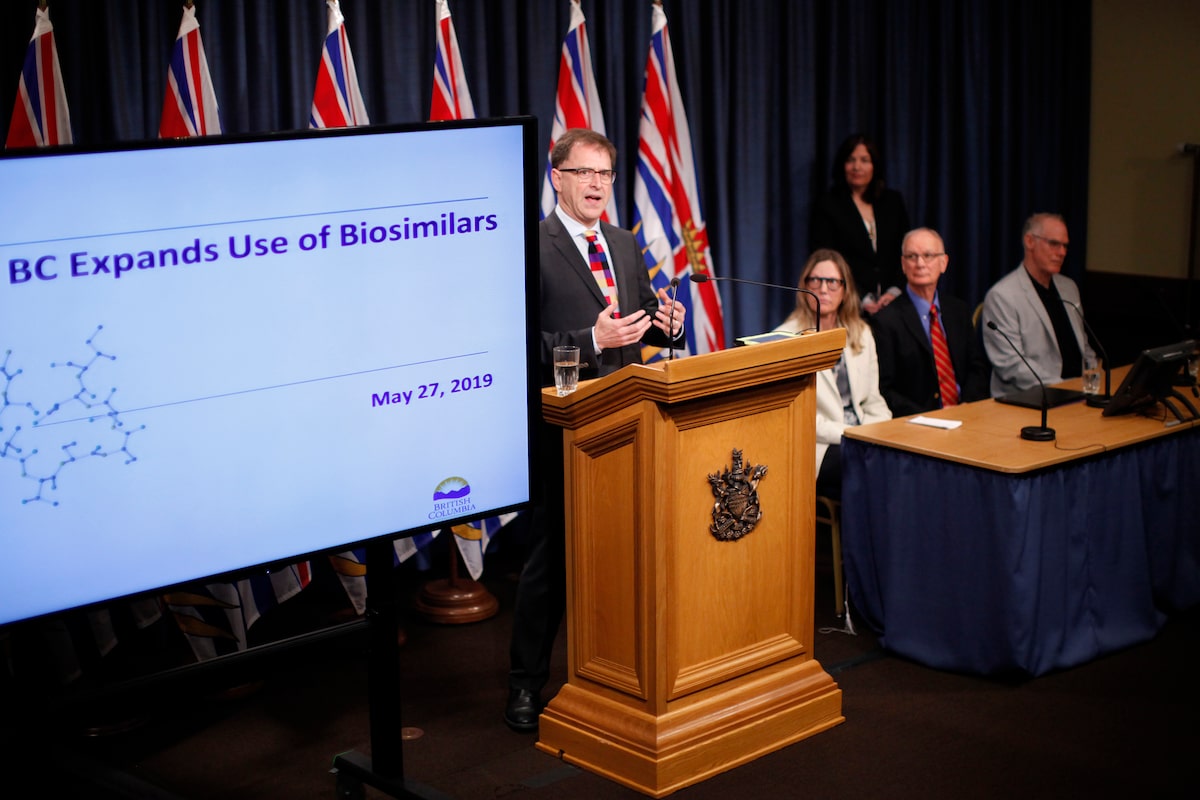- cross-posted to:
- [email protected]
- cross-posted to:
- [email protected]
A British Columbia provincial policy that forced people with chronic illnesses such as Crohn’s disease and rheumatoid arthritis to switch to cheaper medications saved the province more than $730-million over five years, according to a new government report.
The B.C. government said Friday that the money freed up through its biosimilar switching plan allowed the province to expand public coverage of other drugs and devices, including Trikafta, a life-changing treatment for cystic fibrosis and continuous glucose monitors for people with diabetes.
Forcing people to switch medications in this manner may have saved the government money but has put the lives of the patients at risk. If you’re taking a biologic medication, there’s always a chance your body could grow accustomed to it and eventually reject the medication. And there’s a limited number of available biologics to try. And it takes months for the patient’s body to adjust. IMO this was a strategy that was the easiest solution but really doesn’t account for the patients at all. There could at least have been a staggered approach by implementing the change slowly as a natural need to switch medications arose, maximising patient safety. Instead, people with “invisible illnesses” are being forced to unnecessarily switch their medications, reducing the options available to them if the switch doesn’t work. The patient impact would need to be monitored over years to manage this responsibly.
Patients should not be pressured to switch their life-altering medications in order to save the government money. Where is the pressure on pharmaceutical companies to lower their goddamn prices so that patients aren’t expected to absorb all the cost and risks in these scenarios? My medications would cost me or the government $1500/month. I totally agree with the government that the price is insane. PATIENTS DON’T SET THE PRICES.
FYI in the U.S. because of some patent shenanigans, biosimilars are not available until 2029. The current cost is $2200 per week.
Even accounting for exchange rates etc that is insane. With my numbers I’d be paying $78k annually just for my medication. Bitch I don’t even earn that much in a year!
Ecit: heh I’m pretty salty about this one I guess but pharmaceutical pricing for biologics is ridiculous, and I think its outrageous to push the burden onto people who are chronically sick. Fuck that.
Wonder what the patient perspective is?
As someone who’s seen first hand how different brands can work, I’m sure patients really appreciated being told they can’t use the more effective med.
The UK has a similar system. Critically though, doctors or pharmacists can override it.
I ended up cycling over the various generics of the medication I take, over a few months. I could definitely tell the difference between them. As for why I cycled. The system would try and automatically switch me off, unless it was either overridden, or I had already tried that medication. By cycling, I could find out if a generic worked the same (and so save the NHS money). It also stopped the system randomly choosing me to switch.
Overall, I think it’s not a bad idea, it just needs to be done VERY carefully, with override capabilities built-in, and acceptable to use.
This is the best summary I could come up with:
A British Columbia provincial policy that forced people with chronic illnesses such as Crohn’s disease and rheumatoid arthritis to switch to cheaper medications saved the province more than $730-million over five years, according to a new government report.
government said Friday that the money freed up through its biosimilar switching plan allowed the province to expand public coverage of other drugs and devices, including Trikafta, a life-changing treatment for cystic fibrosis and continuous glucose monitors for people with diabetes.
“When this policy was introduced, it was highly controversial,” said Michael Law, a University of British Columbia professor who holds a Canada Research Chair in Access to Medicines.
Biosimilars are near-copies of the original, brand-name versions of biologics, a class of drugs manufactured from living cells.
As the first biologics came off patent, Health Canada began approving biosimilars that were almost like generics but were treated differently in practice and policy.
Biosimilars aren’t interchangeable at the pharmacy, which means doctors must write new prescriptions for the less-expensive product.
The original article contains 479 words, the summary contains 167 words. Saved 65%. I’m a bot and I’m open source!
we saved a bunch of money by not giving sick people the care that they need
Uh… that’s not the flex they think it is.



